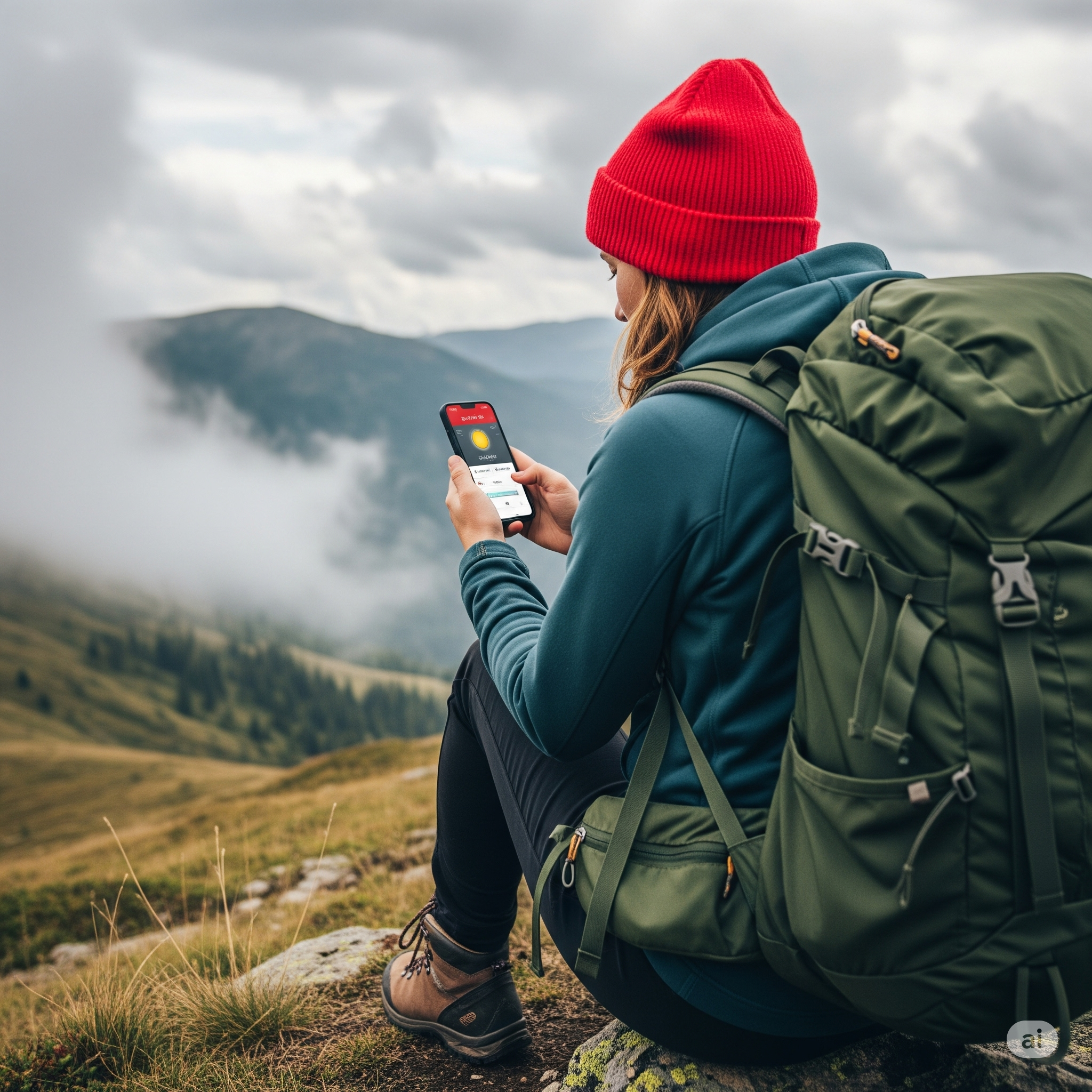Why You Need a Smart Travel Plan in the Mountains
India’s hill stations like Shimla, Manali, and Mussoorie are beloved getaways, but climate change is making their weather unpredictable.
In 2024 alone:
- Himachal Pradesh recorded 80+ flash floods
- Landslides displaced over 5,000 residents
- Tourists were stranded for up to 72 hours
Travelling smart can mean the difference between a serene vacation and a dangerous misadventure.
⚠️ Common Risks in Mountain Travel
1. Flash Floods
Caused by sudden cloudbursts or heavy rainfall, especially in river valley zones.
2. Landslides
Rain loosens mountain soil, causing debris to slide onto roads and trails.
3. Road Closures
Flooding and landslides can block highways and disrupt transport.
4. Mobile Network Loss
Remote areas often lose network during bad weather, delaying help.
✉️ Pre-Trip Checklist for a Safe Mountain Vacation
- ☑️ Check IMD weather updates for your destination
- ☑️ Book flexible stays with cancellation policies
- ☑️ Pack essentials: power bank, torch, rain gear, medicines
- ☑️ Share itinerary and emergency contacts with family
- ☑️ Download offline maps and SOS alert apps (like bSafe, MySafetipin)
📲 Must-Have Apps for Real-Time Alerts
| App | Use Case |
|---|---|
| IMD Weather | Accurate rainfall and thunderstorm warnings |
| Suraksha | Local alerts in disaster-prone zones |
| Aarogya Setu | COVID & health safety still relevant |
| Mappls | Indian alternative to Google Maps, with offline routing |
Pro Tip: Enable location and push notifications for emergency alerts.
🏥 What to Do If You’re Caught in a Sudden Downpour
- Move to higher ground if in a low-lying or riverbank area
- Avoid driving or trekking during rainfall—roads may collapse
- Stay inside the vehicle if stuck, unless advised otherwise
- Use radio or emergency apps for local updates
- Conserve phone battery for emergencies only
🌽 Sustainable Choices = Safer Trips
- Choose eco-certified homestays that are disaster-aware
- Avoid plastic waste which clogs drainage systems
- Don’t disturb natural slopes or trails—it triggers landslides
- Opt for local guides trained in basic emergency response
🌐 Case Study: Tourists Stranded in Sikkim (2023)
In July 2023, over 1,500 tourists were stranded in North Sikkim after landslides.
Key learnings:
- Visitors without offline maps struggled the most
- Those in homestays received better local support
- Social media rumors caused panic—only follow official advisories
🚀 Future-Proof Your Travel Plans
- Travel agencies are offering climate risk insurance
- AI-driven weather apps are being tested in Uttarakhand
- Govt. is installing early warning systems on hill highways
📅 Best Times to Visit the Hills (Safely)
| Region | Safer Months |
| Himachal Pradesh | March–June, late Sept–Nov |
| Uttarakhand | April–June, Oct–Nov |
| Northeast Hills | Nov–April (dry months) |
🌍 Final Word: Travel Smart, Travel Mindfully
You can still enjoy mountain escapes—just do it responsibly.
Preparedness, awareness, and a few digital tools go a long way. Be climate-conscious, stay alert, and help others do the same.
Let the mountains heal you, not harm you.









+ There are no comments
Add yours